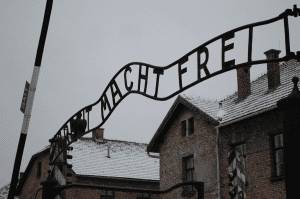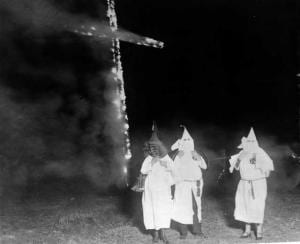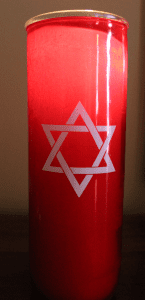 The Us Congress some time ago established a specific time for US Americans to remember the horrors of the Holocaust of the Jewish people. This year that remembrance falls between Sunday, April 4 and Sunday, April 11, with special emphasis on Thursday, April 8, 2021. These days of memory seem especially important this year with the world pandemic, the struggles for racial justice, and the continuing rise of hate crimes of all kinds—against African-Americans, Asian-Americans, Latino-Americans, LGBTQ- Americans. The Holocaust was that monstrous assault on world Jewry instituted by German Nazis following the appointment of the budding dictator, Adolf Hitler, to the chancellorship of Germany in 1933. The next twelve years witnessed the ascending abuse of the Jews, from relatively minor acts of exclusion, culminating in the attempt to obliterate them from the planet. As a result, over 6,000,000 died in ways more horrific than can be fully imagined or easily recounted.
The Us Congress some time ago established a specific time for US Americans to remember the horrors of the Holocaust of the Jewish people. This year that remembrance falls between Sunday, April 4 and Sunday, April 11, with special emphasis on Thursday, April 8, 2021. These days of memory seem especially important this year with the world pandemic, the struggles for racial justice, and the continuing rise of hate crimes of all kinds—against African-Americans, Asian-Americans, Latino-Americans, LGBTQ- Americans. The Holocaust was that monstrous assault on world Jewry instituted by German Nazis following the appointment of the budding dictator, Adolf Hitler, to the chancellorship of Germany in 1933. The next twelve years witnessed the ascending abuse of the Jews, from relatively minor acts of exclusion, culminating in the attempt to obliterate them from the planet. As a result, over 6,000,000 died in ways more horrific than can be fully imagined or easily recounted.
Before my wife and I decided to move to Los Angeles from our near 40-year home in Dallas in 2017, I was working to become a docent at the Dallas Holocaust Museum. I took classes in history, culture, and the ins and outs of good docent leadership. The Museum had already announced a move from its cramped quarters to a modern and gleaming facility newly constructed in the downtown of the city, a facility they now have occupied. I had the chance, just before the lockdown of COVID-19, to tour the new building, and it is a superb place in every way. When you are in Dallas, I urge you to make a visit. Such places are hardly designed for a lighthearted day out, but they are crucial for opening one’s eyes and ears to the terrible events that have shaped our lives as human beings, and that warn us to be ever vigilant against future similar heinous events.
I have long been an amateur student of this period in world history, having read numerous books, and watched many films, that portray the awful details of what we now know as the Holocaust. In reality, even the name of the series of incidents that resulted in the over-arching experience of Holocaust is in some dispute. “Holocaust” is derived from a Hebrew word borrowed from the world of ritual. It is a translation of a word meaning “burnt offering,” a sacrificial gift to God instituted centuries ago by ancient priests. When historians attempted to discern what the slaughter of the Jews actually meant, some determined that their murders were in some sense a “sacrifice” for the futures of Judaism. To other historians, such a designation struck them as somehow blasphemous, innocent victims of Nazi genocide turned into martyrs for the cause of the chosen people. They preferred the word “Shoah,” Hebrew for “catastrophe,” or perhaps “annihilation.” There are few inherent religious connotations in the latter word; it is simply a description of what the murder of the Jews actually was, in short, an utter catastrophe. The word Holocaust is used primarily in western countries, while in Israel and other eastern countries, Shoah is more common. Both terms refer to the appalling Nazi assault on European Jewry, some eight decades ago.
Because we are now removed from the horrors of those events by the passage of those decades, it is too easy to commemorate the events with gestures like the lighting of candles, the reading of names, and the playing of somber music. Such acts can be helpful, but they by themselves cannot substitute for first-hand stories of what actually happened in those hellish camps, how human beings were stripped of all vestiges of their former lives, including their clothes, their hair, their basic dignity as human beings. We are fortunate to be able to hear such stories first-hand, since some survivors are still alive. Due to time’s passing, however, their number is dwindling. Though nothing can finally replace seeing and hearing an actual human being tell us what happened to them—and many brave survivors are still willing to do so—we at least have access to a rich supply of filmed story-tellers, concentration camp survivors who have told the world what transpired in those repulsive and noxious dens of inhumanity. I urge you to seek out such filmed accounts. A look at the websites of any of the Holocaust Museums in the US, as well as the vast archive of the fabulous Israeli Museum, Yad Vashem, will yield a stunning array of survivor tales that will enlighten you and at the same time break your heart.
Statistics gleaned from surveys of various generations of US Americans make it all too clear how little many of us know of the Shoah. A recent 2020 survey showed that nearly 2/3 of US Americans between the ages of 18 and 39 did not know that 6,000,000 Jews were in fact murdered during the Holocaust. 1 in 4 say the Shoah is a myth, and 1 in 8 say they have never even heard of the Holocaust. Obviously, our educational system has not done even a poor job of offering the basic facts of one of history’s most inhuman events. Add to that shocking ignorance the drum-beat of anti-Semitism displayed by various right-wing hate groups; the horrifying chant of the torch-lit bigots at Chancellorsville, VA—“the Jews will not replace us”—is merely one stark example of a string of astonishing instances that suggest that the impulses that motivated the Nazis over 100 years ago have not yet disappeared from among us.
If you are a preacher, I suggest that you find time in your preaching life to address the issues raised by the Holocaust. They are universal and current for every age, especially ours. Race hatred is alive and well among and within each of us, and the Holocaust teaches the possible end result of such unmitigated hatred. The refusal of those of us seemingly unaffected by such hatred to speak up on behalf of those hated ones remains a terrible problem today; the crowds on a New York street just last week who did not come to the aid of an elderly Asian woman, beaten by a man full of racial hatred, indicates that sad reality. If you are a lay Christian, a churchgoer, a believer in the unbreakable love of God for the world, then you need to study the Holocaust, too. From its many tragic facets you can learn vast lessons about human evil and human survival.
Elie Wiesel, himself a concentration camp survivor, continued to write and teach about his experience, putting in searing prose the horrors he saw and lived, perhaps most especially in his small but potent memoir, Night. In another of his books, The Gates of the Forest (1966) he borrows an ancient tale from one of the rabbis about the constant need to tell the stories in order to keep the memories, both bad and good, alive in our hearts.
When the great Rabbi Israel Baal Shem-Tov saw misfortune threatening the Jews, it was his custom to go into a certain part of the forest to meditate. There he would light a fire, say a special prayer, and the miracle would be accomplished and the misfortune averted. Later, when his disciple, the celebrated Magid of Mezritch, had occasion, for the same reason, to intercede with heaven, he would go to the same place in the forest and say: “Master of the Universe, listen! I do not know how to light the fire, but I am still able to say the prayer.” And again the miracle would be accomplished. Still later, Rabbi Moshe- Leib of Sasov, in order to save his people once more, would go into the forest and say: “I do not know how to light the fire, and I do not know the prayer, but I know the place and this must be sufficient.” It was sufficient and the miracle was accomplished. Then it fell to Rabbi Israel of Rizhyn to overcome misfortune. Sitting in his armchair, his head in his hands, he spoke to God: “I am unable to light the fire and I do not know the prayer; I cannot even find the place in the forest. All I can do is tell the story, and this must be sufficient.” And it was sufficient.
It is now our job to hear and to tell the stories of the Holocaust in order to make it possible to avoid the monstrous repetition of its brutalities in our own time, and to steel our own hearts to become upstanders rather than mere bystanders to the evil in our days.
(Images from Wikimedia Commons)











